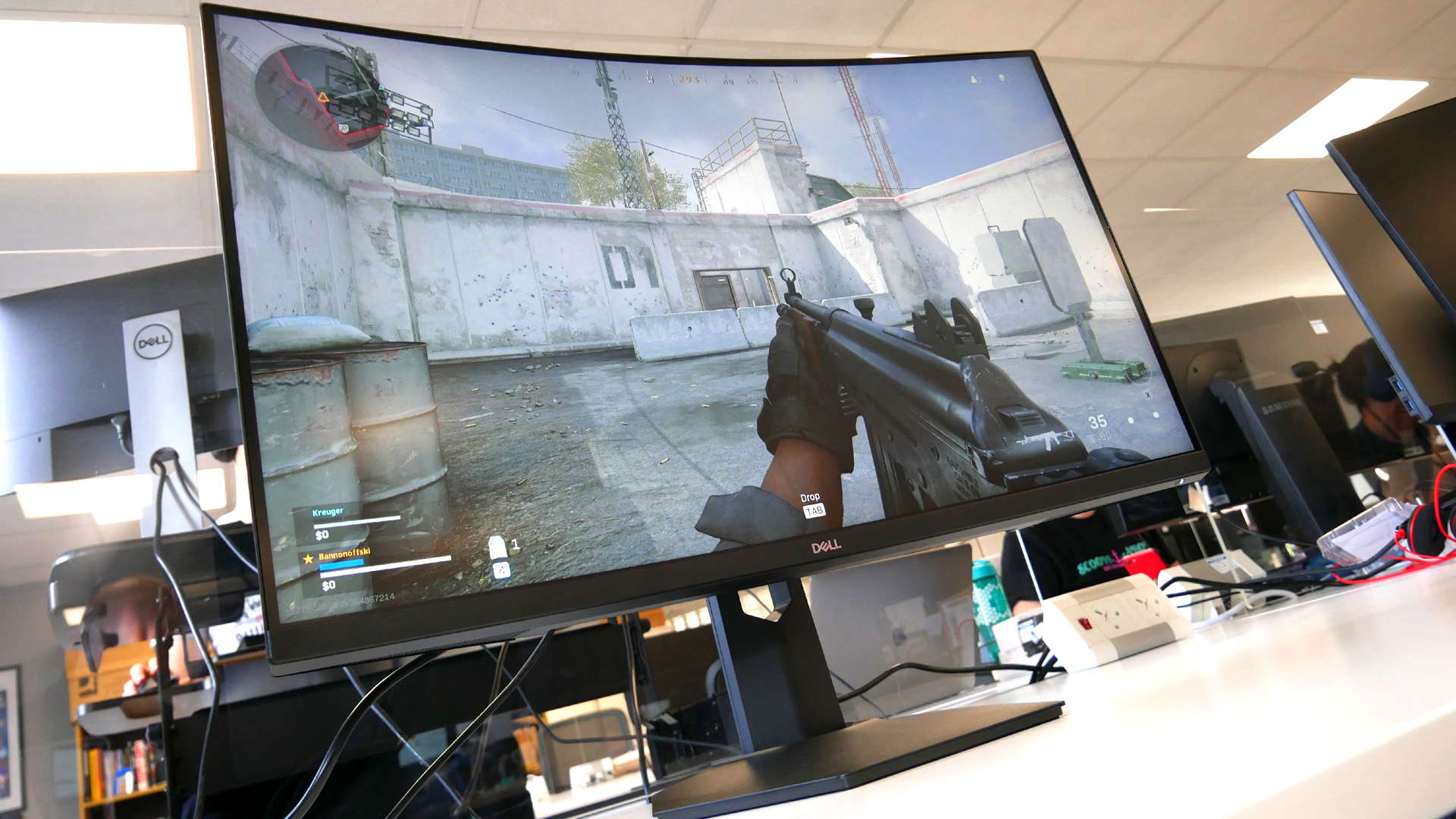Our Verdict
The new Dell S3222DGM doesn’t do anything special. It doesn’t even offer any HDR support. But the overall mix of 1440p res, 165Hz refresh and decent pixel response is pretty compelling at this price, especially when this kind of experience can cost over twice as much with just a few extra frills.
For
- Awesome value for money
- Decent all-round image quality
- Reasonably quick and responsive
Against
- "Only" 1440p
- No HDR support
- Not terribly punchy
PC Gamer's got your back
We'd all love to have a thousand bucks burning a hole in our back pockets to blow on a new gaming monitor. But back in the real world, the Dell S3222DGM wants a crack at the kind of budget most of us actually have.
It's a 32-inch beast with a VA panel running at up to 165Hz and delivering 2560 by 1440 pixels. Yup, the tried and tested 1440p resolution, the sweetspot for real-world gaming according to many, the perfect balance between performance and visual detail. The catch is all that normally applies to 27-inch models. 32 inches? That makes for a pretty big panel for 1440p in terms of pixel density.
To put an actual number on it, you're looking at just 93 pixels per inch. Hold that thought.
Rounding out the basics is a gentle 1800R panel curve. It's a slightly odd, though not actually unique, feature for this class of display. Curvature is a more obvious and natural fit for ultrawide displays. On a conventional 16:9 panel? We still need a little convincing.
As for the finer details, they mostly make sense when you factor in the overall remit. Which is a gaming-centric monitor without any HDR support, but based on VA panel technology. So, the peak brightness is 350 nits, static contrast is about as good as it gets at 3,000:1, and there's official AMD FreeSync Premium certification.
Panel size: 32-inch
Panel technology: VA
Native resolution: 2,560 x 1,440
Aspect Ratio: 16:9
Refresh rate: 165Hz
Response time: 1ms MPRT, 2ms GtG
HDR: No
Contrast: 3,000:1
Color: 99 percent sRGB
Brightness: 350 cd/m2
Video Inputs: DisplayPort 1.2 x1, HDMI 2.0 x2
Other: AMD FreeSync Premium
Price: $330 | £350
Intriguingly, and actually quite helpfully, Dell doesn't just quote just one pixel response figure. It rates response according to the level of overdrive applied, with 8ms gray-to-gray in 'fast' mode, 4ms gray-to-gray in 'super fast', 2ms gray-to-gray in 'extreme' and finally, and somewhat confusingly, 1ms gray-to-gray in 'MPRT' mode.
Anywho, along with all that the Dell S3222DGM gives you two HDMI 2.0 ports and a lone DisplayPort 1.2 socket, slim-bezel design. and a stand that offers height and tilt adjustment, but no swivel or rotate into portrait mode. And you get it all for around $350 or £350. It's not quite the steal of the century, on paper, then. But it is a very solid value proposition from one of the biggest brands in the business.
So, how does it actually perform? Initial impressions are middling to mediocre. This isn't the brightest or punchiest panel we've ever seen, even accounting for expectations set by the modest spec list. On the other hand, there's nothing actually wrong, there's no banding, no sign of compression. It's just not immediately exciting in terms of colours and inherent visual pop.
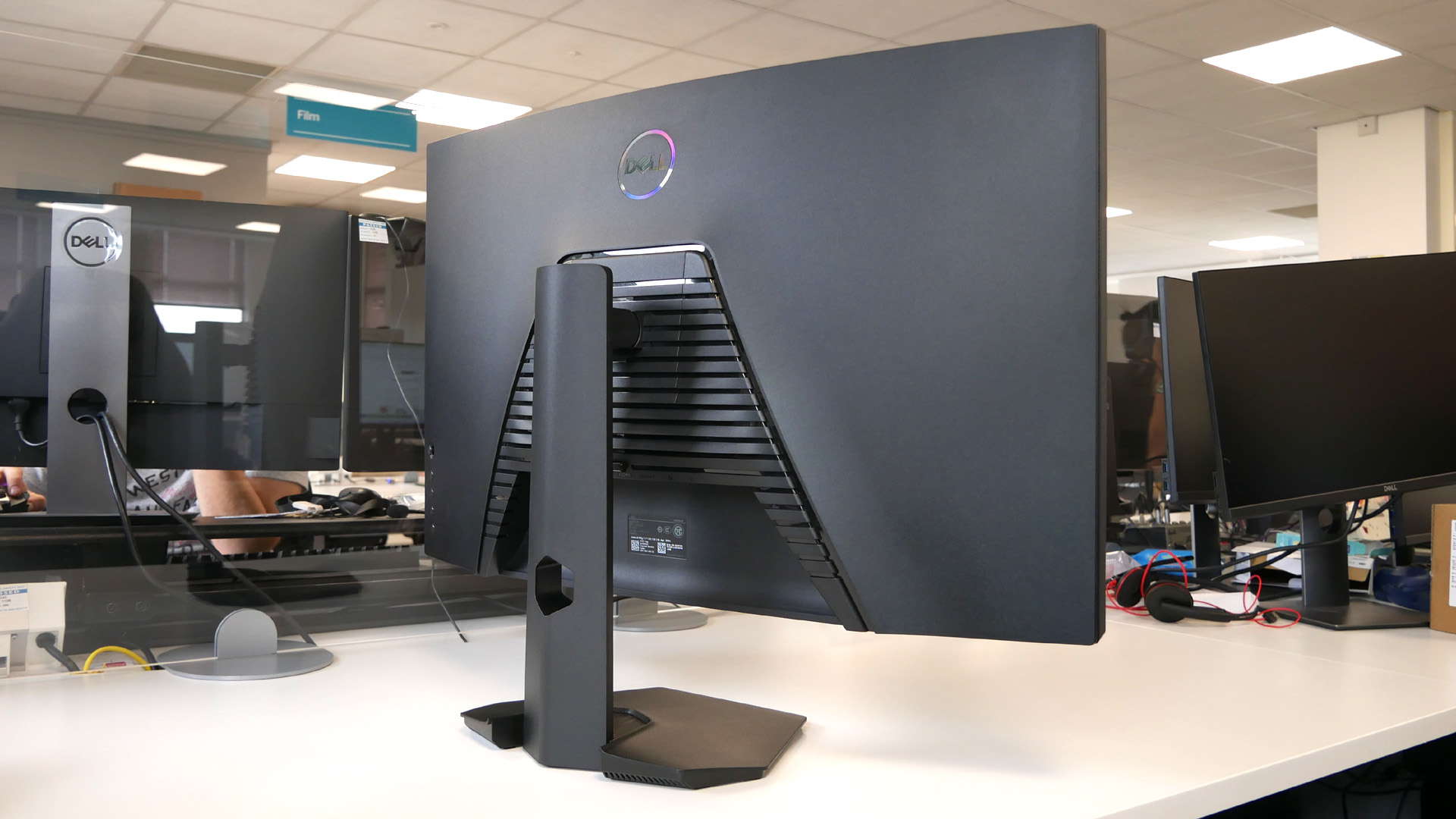
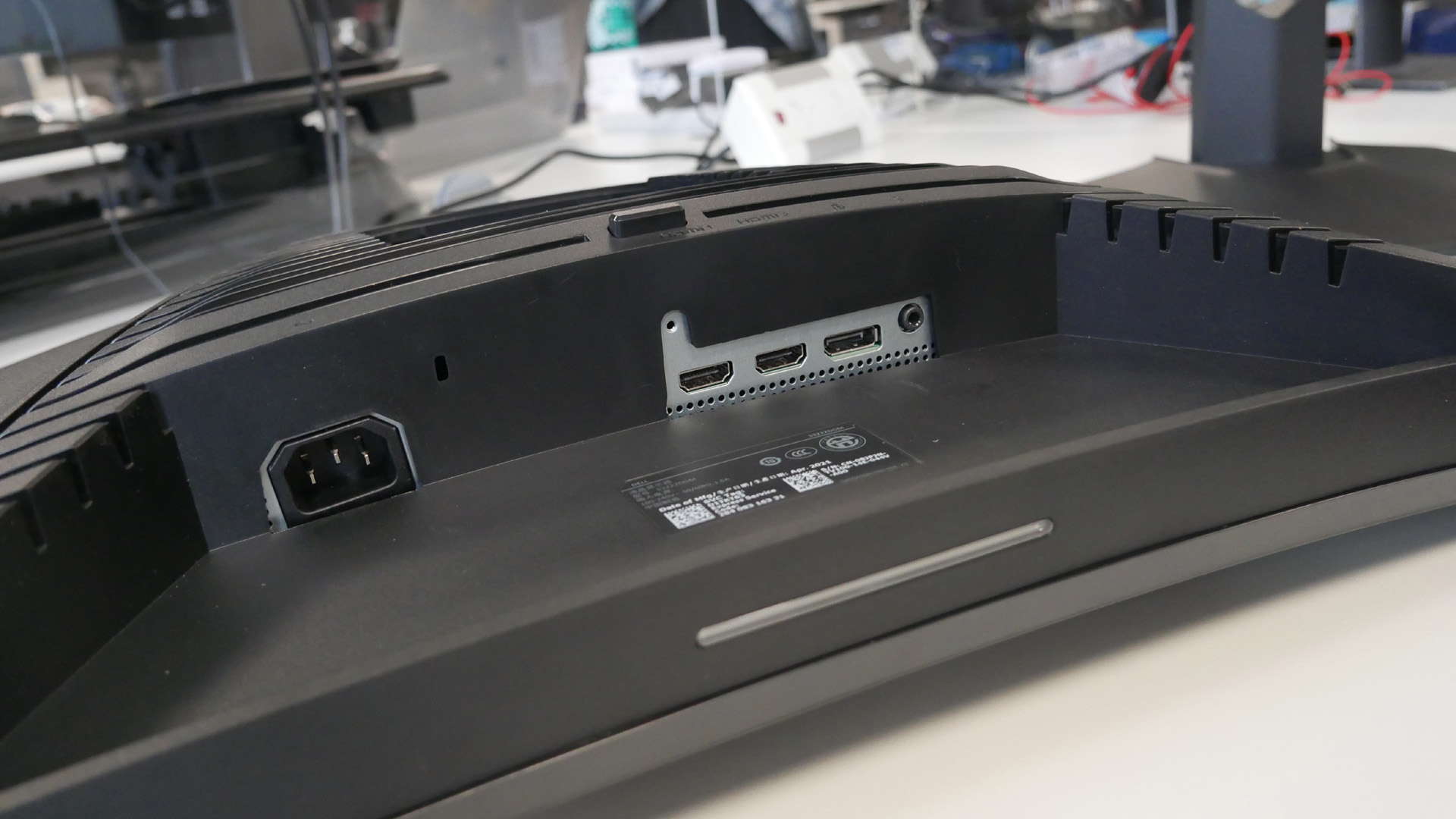
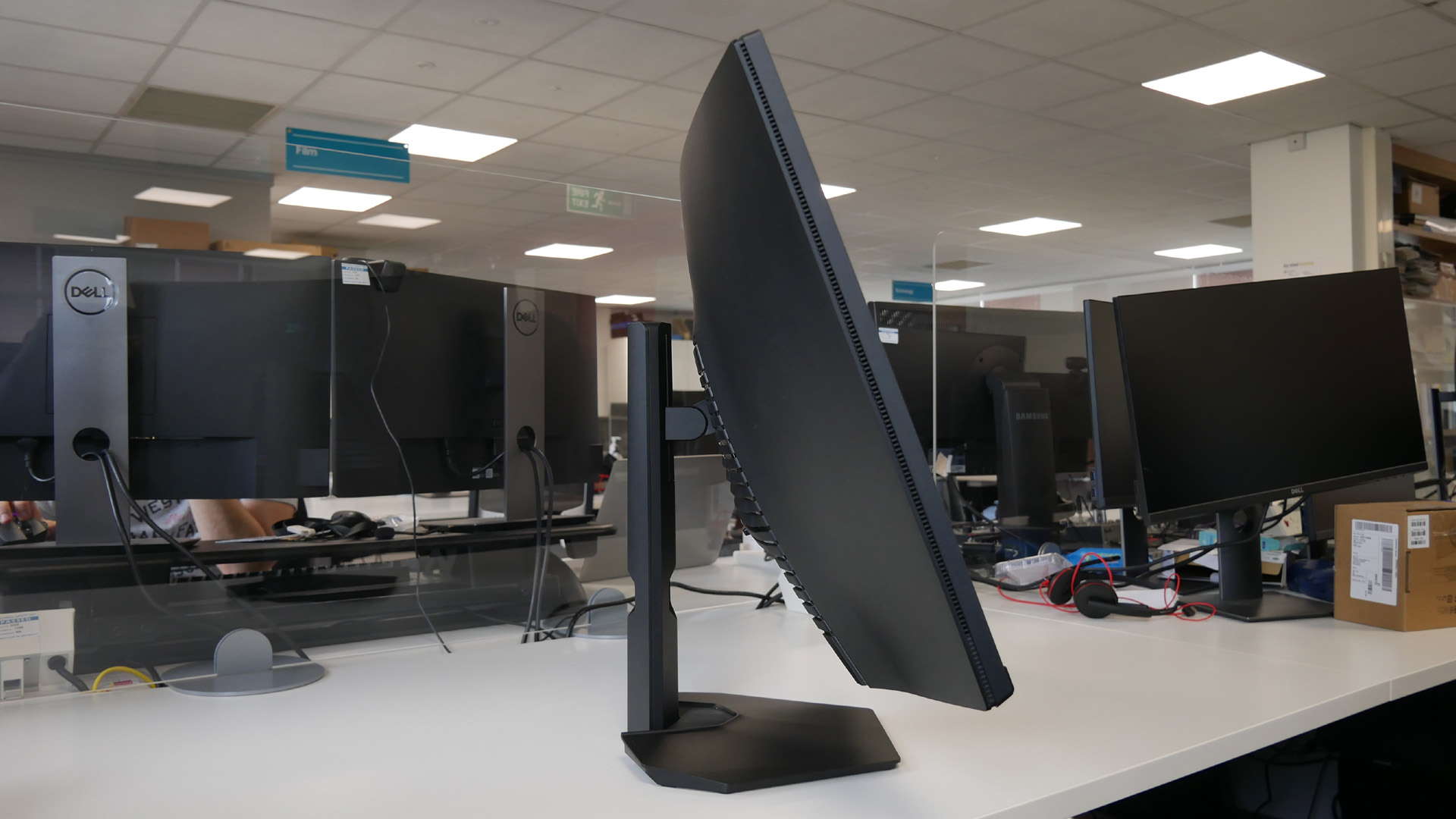
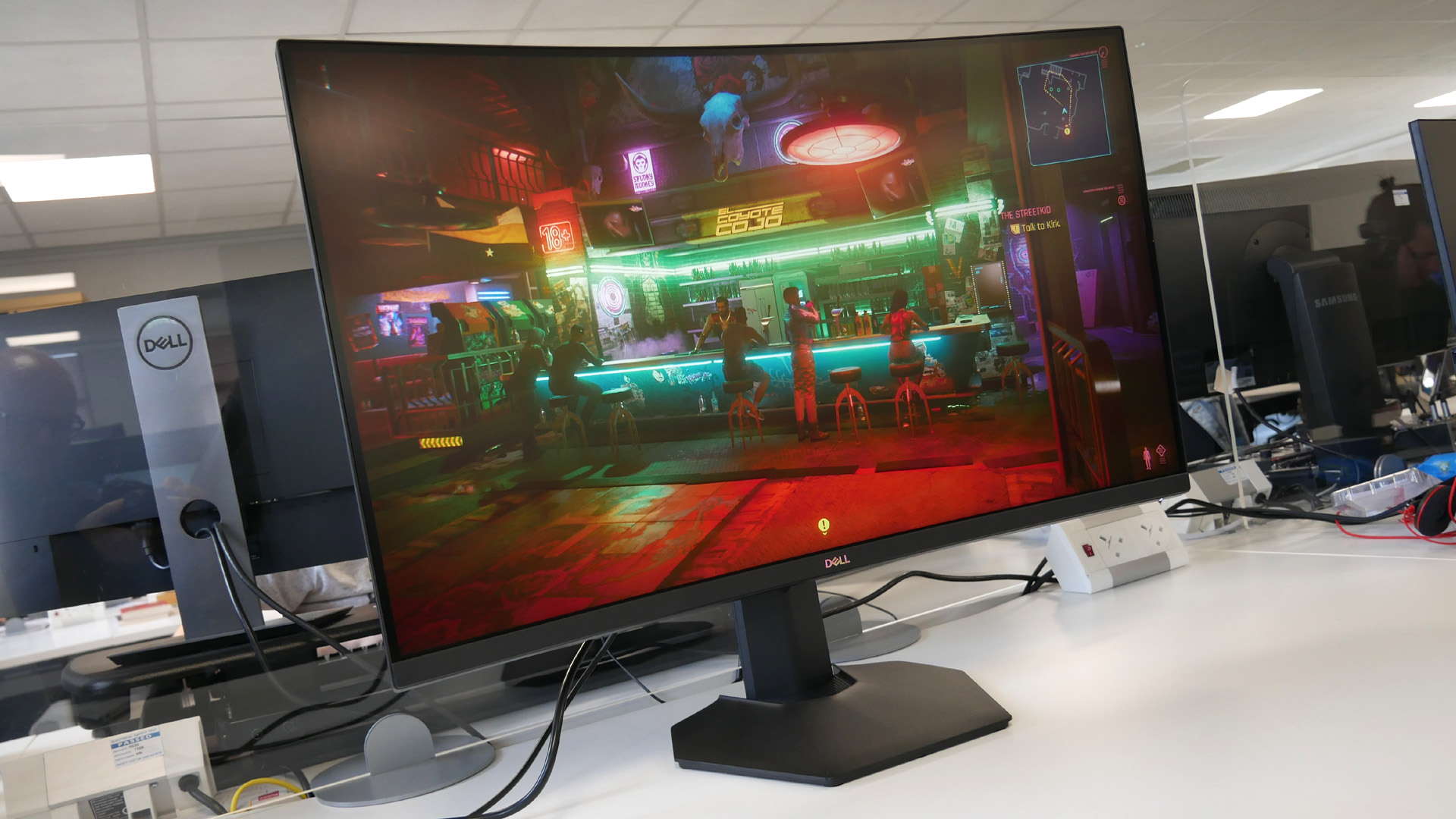
Inject some motion into proceedings and the picture, pun intended, gets a little clearer. The 'extreme' overdrive setting is arguably a little overcooked, with some overshoot actually visible in-game rather than merely detectable in test images. The 'MPRT' setting is, for us, a non-starter since it crushes brightness so comprehensively. 'Super fast' it is, then, and the result is good but not absolutely great response with no overshoot. Pretty much what you’d expect given the 4ms rating for 'super fast'.
But add in the 165Hz refresh and you have a pretty convincing monitor for response-critical online shooters. To be sure, if that is your number one priority, you’d be better off with a higher-refresh 1080p IPS monitor with faster response. But if you want something for a broader remit, the Dell S3222DGM does a decent job at the low latency stuff.
But what about games that go big on eye candy? You know, Cyberpunk, Witcher 3, or arcadey racing games like the Forza series? Undeniably, there’s a certain lack of visual pizzazz, the sharpness and fizz of 4K on a similarly proportioned 32-inch panel is clearly lacking. But, again, the S3222DGM is okay. The same applies to strategy titles. Ideally, 4K would allow for more fine grain detail of troop movements and more space for menus and other interface items, but 1440p is hardly restrictive.
We're also alright with the panel curvature. Does it add anything? That's arguable. But neither does it detract, it's quite gentle curve after all. So, the overarching point here that should not be overlooked is that if you want a larger panel like this, 4K isn’t an all-round win. It comes with a huge additional GPU load and that in turn requires mega investment levels in a good graphics card, given the mental current state of the graphics card market.
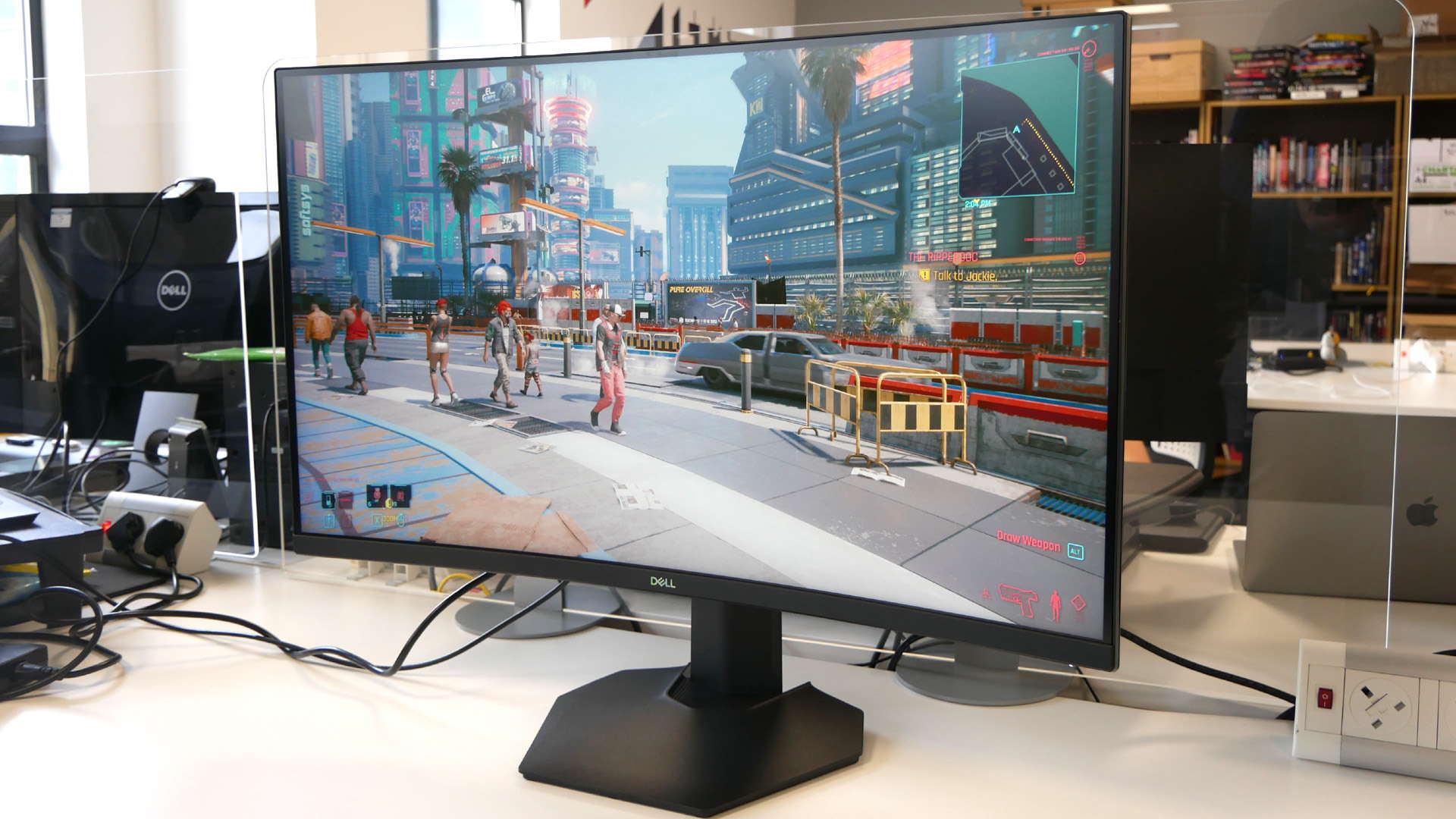
In fact, where the low pixel density hurts most is actually in Windows. If you like crisp fonts and lots of desktop real estate, this isn’t the monitor for you. For everyone else, well, it comes down to the value proposition. There are faster monitors. There are monitors with superior IPS-powered image quality. There are monitors with all kinds of HDR support not found here. And others with far more pixels or more dramatic aspect ratios.
It's worth remembering that pricing for this class of display - a 32-inch 165Hz 1440p panel - extends all the way up to $800 in the Corsair Xeneon 32QHD165. So, while the Dell S3222DGM isn't all that exciting from a technical point of view, for the money, it's pretty convincing.
The new Dell S3222DGM doesn’t do anything special. It doesn’t even offer any HDR support. But the overall mix of 1440p res, 165Hz refresh and decent pixel response is pretty compelling at this price, especially when this kind of experience can cost over twice as much with just a few extra frills.

Jeremy has been writing about technology and PCs since the 90nm Netburst era (Google it!) and enjoys nothing more than a serious dissertation on the finer points of monitor input lag and overshoot followed by a forensic examination of advanced lithography. Or maybe he just likes machines that go “ping!” He also has a thing for tennis and cars.
